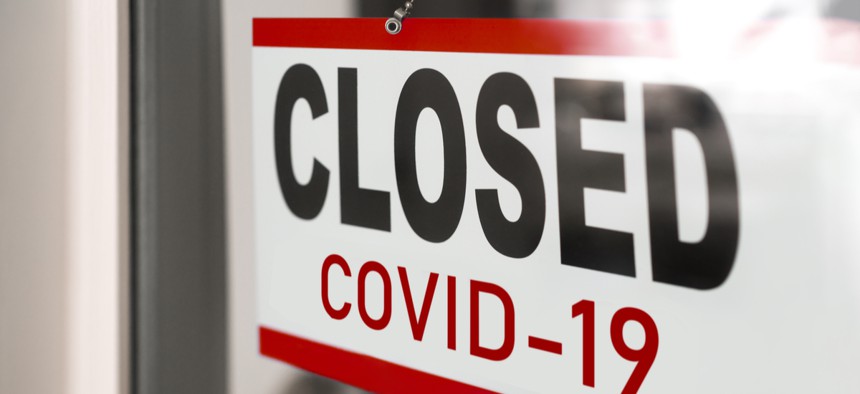Lawmakers Call for Federal Program to Upgrade Unemployment Systems

aridav/Shutterstock.com
Many people filing for unemployment during the pandemic have experienced long delays. Subpar technology is one of the factors commonly blamed for problems.
The Labor Department would establish and maintain computer and cybersecurity technology that states could incorporate into their unemployment insurance systems under a bill that a group of Democratic senators are backing.
As the coronavirus pandemic has hammered large parts of the economy over the past year, millions of out-of-work Americans filed unemployment claims. Between March and December 2020, workforce agencies processed over 1 billion claims and paid out over $500 billion in benefits, according to a report the National Association of State Workforce Agencies issued last week.
"Last year, there were states that processed the equivalent of 10 years of unemployment applications within 10 months," Scott Sanders, the association's president and CEO, said in a statement.
But in many states, people have run into frustrating delays as the agencies that process claims struggle with heavy workloads. Meanwhile, glitchy and outdated computer technology is a long-standing problem for state unemployment systems. And the surge in pandemic-era unemployment helped set the stage for scammers to snatch away billions of dollars in fraudulent payouts.
These are the sorts of issues the senators are aiming to address with their legislation.
“My bill requires a complete overhaul of unemployment insurance technology, and paves the way for one website to apply for jobless benefits," said U.S. Sen. Ron Wyden, of Oregon, the bill's lead sponsor.
If enacted, the legislation would give the Labor Department up to two years to develop and implement a "modular set of technology capabilities," using an "open systems approach," to help modernize unemployment insurance systems. It proposes about $500 million of funding for this and other related initiatives.
The bill specifies that this technology should cover each area necessary to run an unemployment system—including receiving, processing and paying claims, online claim filing, appeals and adjudication processes, and the submission of employer wage records.
Under the legislation, the technology the federal government develops for this program would need to comply with certain best practices and standards for privacy and cybersecurity, including when it comes to verifying the identity of users.
The legislation also would allow states to easily adapt specific components of the technology to meet their individual needs, and give them the option of continuing to use their own databases for unemployment-related information, as long as those databases meet certain guidelines.
A spokesperson for the National Association of State Workforce Agencies said the group does not discuss proposed legislation outside of its membership and did not have any comment on the bill.
Parts of the bill also address issues like accessibility and ensuring that people with disabilities, or those who speak limited English, can file claims, as well as limiting how much the proposed technology could rely on automated decision-making to deny or reduce benefits.
Andrew Stettner, a senior fellow at The Century Foundation, applauded the measure for taking a national approach to solving shortcomings with unemployment systems, and for its focus on user-centered design, civil rights, and protections against algorithmic bias.
"The Covid-19 pandemic has exposed serious deficiencies in the technology used to process unemployment insurance claims," he said. "The good news is, we can fix these UI tech challenges."
The legislation directs the secretary of labor and the administrator of the U.S. Digital Service to conduct a study of state and federal unemployment system needs before forging ahead with developing or procuring any of the new technology the bill calls for. They'd have four months to complete the study and issue a report on their findings.
Additionally, the bill would establish a digital services team within the Labor Department that would, among other duties, assist states seeking to incorporate the newly created federal technology into their unemployment computer systems.
At least three other Democratic senators, along with Wyden, have signed onto the bill—Sens. Sherrod Brown, of Ohio, Mark Warner, of Virginia, and Catherine Cortez Masto, of Nevada.






